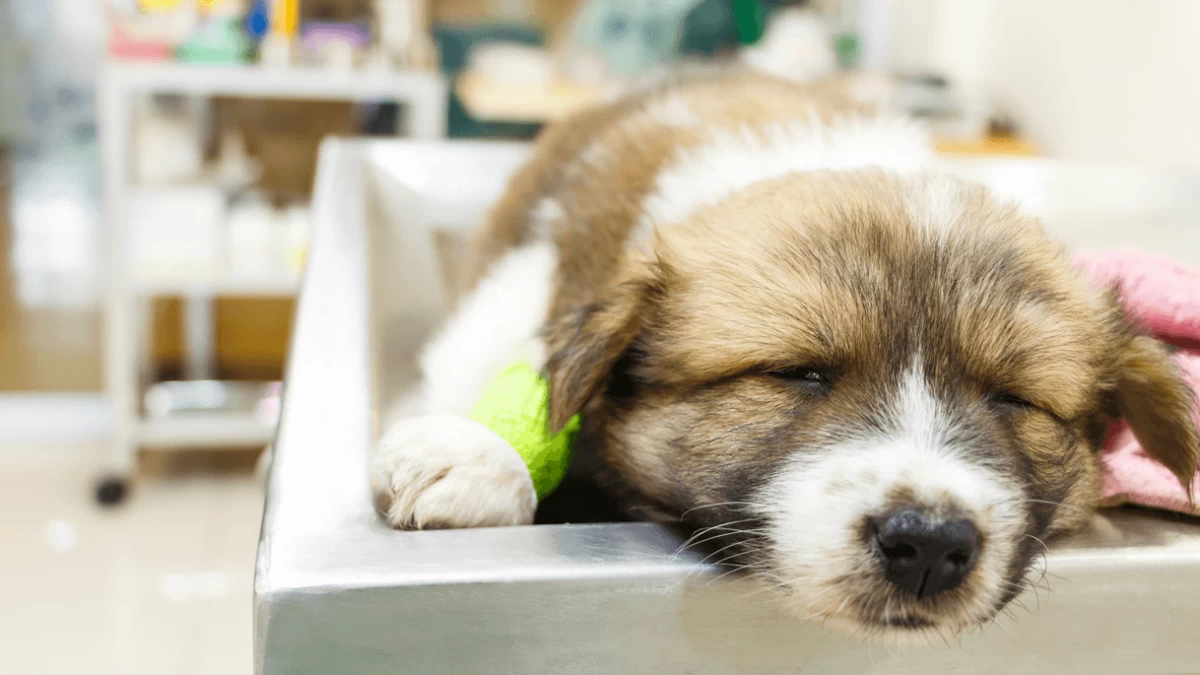Coccidia In Dogs - All You Need To Know
14.12.2020.
Coccidia is a parasite that can cause all sorts of problems, especially for young puppies. If you are a dog owner, or you are thinking of getting one, it is a good thing you are educating yourself and looking into keeping your puppy as healthy as possible.
There are some things you should know about coccidia in dogs, especially about treatments, symptoms, and dangers this nasty little parasite can cause. Luckily, we are here to help, and you can find all the necessary information about coccidia in this article. Let’s check it out.
What is coccidia in dogs?
Coccidia is a single-celled parasite responsible for coccidiosis - a disease that affects a dog’s intestine lining. There are different types of this parasite, and the one that usually causes harm to puppies is Cystoisospora. It is a sneaky parasite that can easily infect puppies if their owners are unaware of how puppies get infected.
How can my dog get infected with coccidia?
To get infected by coccidia, your dog will have to ingest the coccidia oocysts (coccidia eggs). That usually happens if your dog eats something that was contaminated by this parasite. The coccidia oocysts are sneaky, and they can survive quite a long time on the ground or in doggie “droppings.” Your dog can get infected directly or indirectly.
Interested in keeping your puppy healthy? Then you should read this: Parvo In Dogs: Vaccination, Symptoms & Treatment.
Direct infection
Direct coccidia infection is defined as a dog getting infected through direct ingestion of coccidia oocysts from contaminated droppings or soil contaminated with fecal matter. There the coccidia eggs will infect the intestine.
Indirect infection
A dog can get infected by this parasite by eating or chewing on an infected mouse or some other dead rodent. If a mouse already has coccidia, it will most likely infect the dog that has eaten it.
What is coccidiosis?
When a dog ingests the coccidia parasite, it will take some time until the infection spreads, but you can be sure it will happen. Parasites cause illnesses, and coccidia is responsible for coccidiosis. It is a disease that affects the gastrointestinal tract, where this parasite spends most of its life cycle.
What are the symptoms?
Nobody likes to hear that their dog was infected by a parasite, and you are right to be worried if your dog did get infected. Luckily, coccidia is not a parasite that will harm your dog too much, but only if you are the type of owner that takes good care of their dog. You should take them to the vet if you notice some of these symptoms:
It is important that you notice your dog’s strange behavior, and if that behavior goes for some time, you should take them to the vet for a check-up. Vets can easily diagnose coccidiosis by examining the stool of an infected puppy, and if they find coccidia eggs, the diagnosis is 100% correct.
Never leave a sick dog without treatment. Even the coccidia can have deadly consequences if left untreated!
There is another common puppy parasite, and you can read about it here: Heartworm In Dogs - All You Should Know.
How to treat coccidiosis?
The treatment can be fairly long, but luckily, it is easily available. Vets will prescribe antiparasitic medications that will eliminate this nasty parasite, which will stop causing problems for your dog. However, if your dog suffered other symptoms like anorexia, dehydration, or bloody diarrhea, some additional treatments might be necessary for those problems.
Can coccidiosis be prevented?
The good news is that coccidiosis can be prevented. If you are often around different dogs, urge their owners to pick up after their dogs right away because limiting the contamination is the best way of preventing the spreading of this parasite.
Make sure you take proper measures if you have a kennel. Clean after your dogs and use disinfectants. Coccidia is resistant to a lot of disinfectants, but diluted chlorine bleach will take care of that. When it comes to preventing this parasite, sanitation is the key. Clean often and thorough, and make sure you clean your dog’s bowl every day to make sure you will get rid of the parasite.
It is also important that you become aware of your dog’s surroundings, and if there is a place where you think coccidia can be present - avoid those places. Make sure your dog doesn’t eat other dog’s poop and that they don’t put dead animals you could encounter, like mice, rats, or squirrels, in their mouths.
Can humans get infected?
The parasite that infects dogs is not known to cause any harm to humans or even infect them. There aren’t any recorded cases where this particular parasite infected a human. However, other types of coccidia can infect humans, so you have to care about your dog’s and your own hygiene for your sake as well.
It might sound strange that dogs eat poop, and you can read all about it in this article: Why Do Dogs Eat Poop?
World Dog Finder team







Share